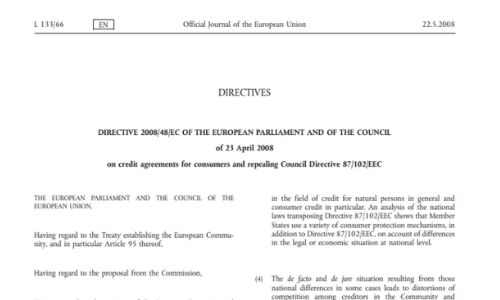In 2008 the European Union created the Consumer Credit Directive (or CCD in short). The CCD was meant to protect consumers when they had to obtain credit, and among other things, it mandated the use of Credit Worthiness Assessments.
In the Years following its creation, the CCD have faced a lot of criticism for being too vague on key definitions and not providing adequate protection of the consumers. A report from the BEUC wrote:
“In general, the CCD has been criticized not only for not imbuing responsible lending in its provisions but especially for insisting on relying on the ability of informed, confident and rational consumers as drivers of economic efficiency but not caring about the socially and financially vulnerable consumers such as those who become over-indebted. (…) The CCD is not explicit and it is to some extent unclear on the exchange of consumer information, at least as far as the obligation to share information is concerned” (p. 22)
During the meeting, the active participants were asked to assess in small groups the policy options in terms of their feasibility (legal and technical), their expected effectiveness, efficiency and EU added value to address the problems identified, and their impacts on consumers as well as the industry (included unintended effects). There was an exchange of conclusions between the different groups and a wider discussion following the breakout session. Rather than providing general feedback on the policy options, the organisers were looking to gather specific input from active participants that will help them assess each option to the level of detail required (their analysis will also include a cost-benefit analysis).
Here you can read more about the input of the ECDN.



